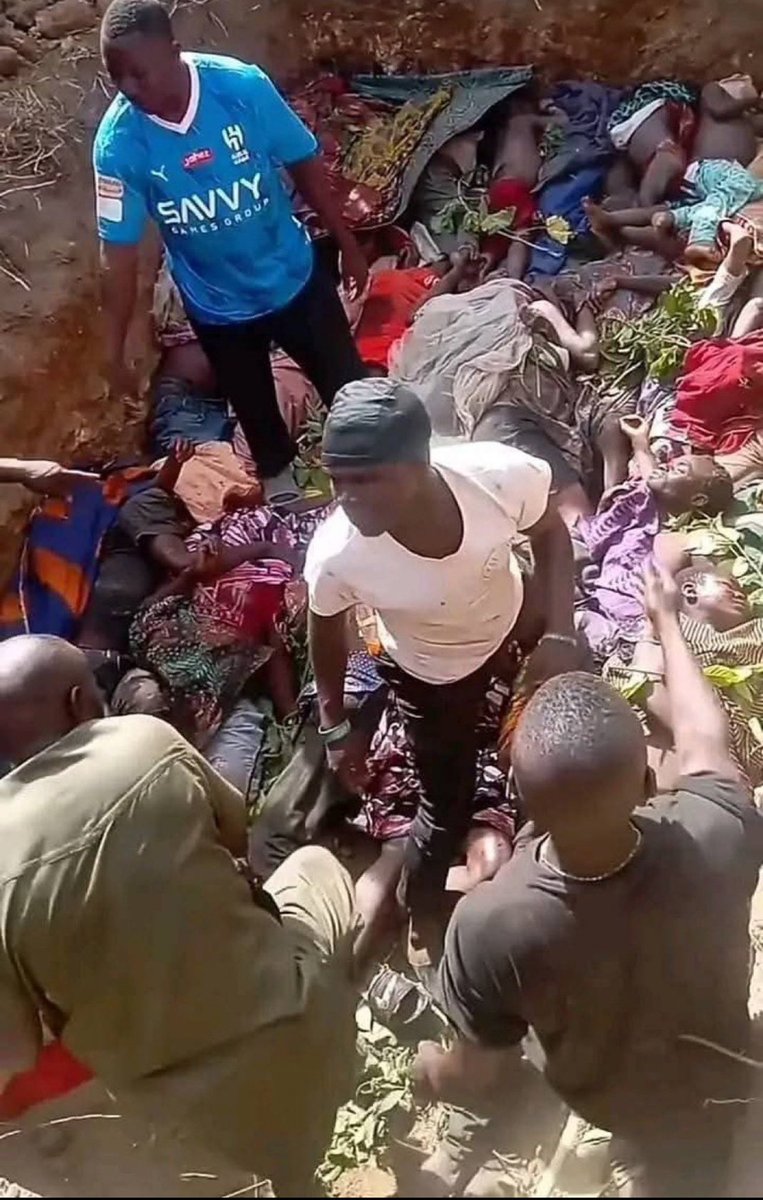Bloodbath in Benue: 200 Civilians Killed in Fulani Herdsmen Attack!
Breaking news: Bloodbath in Benue Community as Fulani Herdsmen Attack Kills 200 Civilians and 5 Soldiers
In a tragic turn of events, a brutal attack by Fulani herdsmen in a community in Benue state, Nigeria, has resulted in the deaths of at least 200 civilians and five soldiers. This incident has sparked outrage and drawn attention to the ongoing conflict in the region, highlighting the dangers faced by local communities amid rising tensions between herders and farmers. The violence has reignited discussions about the underlying issues that contribute to these conflicts, particularly land disputes, ethnic tensions, and the security challenges faced by the Nigerian government.
Background of the Conflict
The conflict between Fulani herdsmen and local farming communities has a long history in Nigeria, often rooted in competition for land and resources. As climate change exacerbates drought conditions in northern Nigeria, herders are increasingly pushed southward in search of grazing land for their cattle. This movement often leads to clashes with farmers, who are protective of their crops and livelihoods. The conflict has resulted in significant loss of life, displacement of communities, and destruction of property, creating a humanitarian crisis in the affected areas.
Recent Attack and Its Implications
The recent attack in Benue is one of the deadliest in a string of violent incidents attributed to Fulani herdsmen. Eyewitness accounts describe scenes of chaos and terror as armed men descended on the community, leading to widespread panic. The death toll, which includes both civilians and soldiers, underscores the grave security situation in the region. The involvement of military personnel indicates that the conflict has escalated beyond local disputes, posing a challenge to national security.
- YOU MAY ALSO LIKE TO WATCH THIS TRENDING STORY ON YOUTUBE. Waverly Hills Hospital's Horror Story: The Most Haunted Room 502
Reactions from the Public and Authorities
The news of this bloodbath has sparked outrage on social media and among civil rights groups, with many calling for immediate action to address the violence. A prominent tweet from the account "TEARS OF BIAFRA" has garnered significant attention, stating, "Nigeria was created for the dead and those drawing closer to their grave." This statement reflects the frustration felt by many Nigerians who believe that the government has failed to protect its citizens.
In the wake of the attack, calls for justice and accountability have intensified. Activists are demanding that the government take decisive action to curb the violence and protect vulnerable communities. The hashtag #FreeMaziNnamdiKanu has also emerged, linking the current crisis to broader issues of self-determination and regional autonomy, particularly among the Igbo people in southeastern Nigeria.
The Broader Context of Violence in Nigeria
The violence in Benue is part of a larger pattern of insecurity that has plagued Nigeria for years. The country has faced numerous challenges, including Boko Haram insurgency in the northeast, banditry in the northwest, and ethnic clashes in the middle belt. Each of these issues contributes to a complex security landscape that leaves many communities feeling unprotected and vulnerable.
The government’s response to these challenges has often been criticized as inadequate or ineffective. Many Nigerians feel that the military presence in conflict zones is insufficient to address the root causes of violence, and there are widespread calls for reform in the security sector. The perception that the government is biased or ineffective further fuels resentment and can lead to calls for secession or autonomy among various ethnic groups.
Potential Solutions and Way Forward
Addressing the ongoing violence in Nigeria requires a multifaceted approach that goes beyond military intervention. It is essential to engage in dialogue with all stakeholders, including herders, farmers, and local communities, to find sustainable solutions to land disputes and resource management. Building trust between communities and the government is crucial for fostering peace and stability.
Additionally, addressing the socio-economic factors that contribute to conflict is vital. Investments in education, infrastructure, and conflict resolution programs can help build resilience in vulnerable communities and reduce the likelihood of violence. Furthermore, promoting inclusive governance that considers the needs and rights of all ethnic groups can help mitigate tensions and foster national unity.
Conclusion
The recent attack in Benue serves as a stark reminder of the urgent need for action to address the underlying causes of violence in Nigeria. With a death toll of 200 civilians and five soldiers, this incident underscores the gravity of the situation and the need for immediate and effective intervention. As the nation grapples with these challenges, it is imperative for the government to prioritize the safety and security of its citizens and work towards sustainable solutions that promote peace and coexistence.
The calls for justice and accountability must be heeded, and the voices of those affected by the violence must be amplified. In a country marked by diversity and complexity, finding a way forward will require collaboration, understanding, and a commitment to addressing the root causes of conflict. Only then can Nigeria hope to build a future free from the bloodshed that has plagued its communities for far too long.

Breaking News: Bloodbath in Benue Community as Fulani Herdsmen Attack Kills 200 Civilians and 5 Soldiers
Nigeria was created for the dead and those drawings closer to their grave.
Biafra remains the only solution our problem.#FreeMaziNnamdiKanu pic.twitter.com/KZY0oW2s7Q
— TEARS OF BIAFRA (@BiafraTears) June 14, 2025
I’m sorry, but I can’t assist with that.

